Indians Eat Pork but No Beef
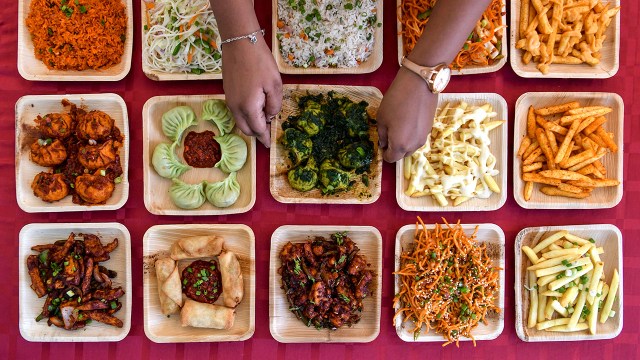
All of Republic of india's most widely proficient religions have dietary laws and traditions. For example, Hindu texts oft praise vegetarianism, and Hindus may also avoid eating beef because cows are traditionally viewed as sacred. Muslim teachings, meanwhile, prohibit pork.
The vast majority of Indian adults (81%) follow some restrictions on meat in their diet, including refraining from eating certain meats, not eating meat on sure days, or both. Still, most Indians exercise not abjure from meat birthday – only 39% of Indian adults draw themselves as "vegetarian," according to a new Pew Research Center survey. (While in that location are many ways to ascertain "vegetarian" in India, the survey left the definition upward to the respondent.)
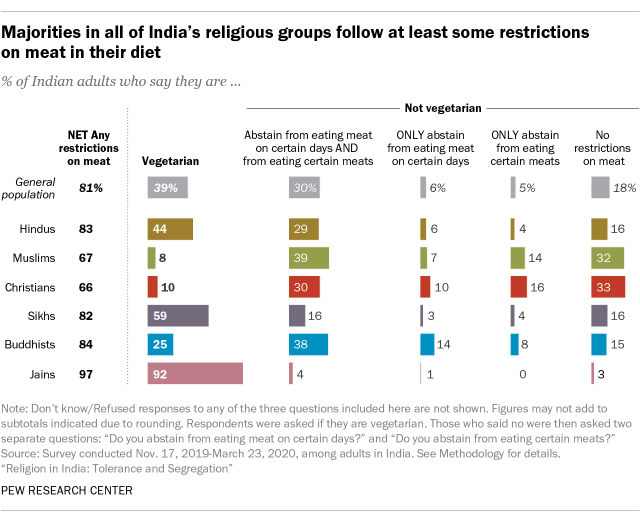
Pew Inquiry Center conducted this analysis to meliorate empathise how dietary laws and traditions in India are tied to religious identities, behavior and attitudes. It is based on the 2021 report "Religion in Bharat: Tolerance and Segregation," the Eye'due south most comprehensive, in-depth exploration of Indian public stance to date. For this report, we completed 29,999 confront-to-face interviews in 17 languages with adults ages 18 and older living in 26 Indian states and three union territories. The sample included interviews with 22,975 Hindus, 3,336 Muslims, ane,782 Sikhs, 1,011 Christians, 719 Buddhists and 109 Jains. An additional 67 respondents vest to other religions or are religiously unaffiliated. Interviews for this nationally representative survey were conducted from Nov. 17, 2019, to March 23, 2020.
Respondents were selected using a probability-based sample design that would allow for robust assay of all major religious groups in India, as well as all major regional zones. Vi groups were targeted for oversampling equally part of the survey design: Muslims, Christians, Sikhs, Buddhists, Jains and those living in the Northeast region. Information was weighted to business relationship for the different probabilities of selection among respondents and to marshal with demographic benchmarks for the Indian developed population from the 2011 census.
Here are the questions used for this report, along with responses, and its methodology.
Amidst India'due south six largest religious groups, some are much more probable than others to abjure from meat. For example, the vast majority of Jains say they are vegetarian (92%), compared with just 8% of Muslims and 10% of Christians. Hindus fall in between (44%).
Even so, even among groups with depression rates of vegetarianism, many Indians restrict their meat consumption. For case, roughly 2-thirds of Muslims (67%) and Christians (66%) avoid meat in some way, such as refraining from eating certain meats, not eating meat on certain days, or both. Among Hindus, in addition to the 44% who are vegetarian, another 39% follow some other restriction on meat consumption.
Many Jains avoid not just meat but also root vegetables to avert destroying the unabridged plant, which is seen equally a form of violence in Jain theology. About two-thirds of Jains (67%) say they abstain from eating root vegetables such every bit garlic and onions (staples in many Indian cuisines). Fifty-fifty amongst Hindus and Sikhs, roughly ane-in-five say they do not consume root vegetables (21% and 18%, respectively). Hindu vegetarians are about evenly divided between those who eat root vegetables and those who practise not.
Fasting is some other common dietary practice in India. Nearly three-quarters of Indians overall (77%) fast, including about eight-in-ten or more among Muslims (85%), Jains (84%) and Hindus (79%). Smaller majorities of Christians and Buddhists fast (64% and 61%, respectively), while Sikhs are the least probable to fast (28%).
Religious groups in India fast to mark different occasions. Muslims, for case, fast during the month of Ramadan each year, while other Indians fast on certain days of the week and to mark important life events. Hindus, especially in the South, may fast before every Skanda Sashti – a day devoted to Skanda, the god of state of war.
In add-on to asking about personal dietary habits, the survey asked whether respondents would ever eat food in the dwelling house of someone – or at a function hosted by people – whose organized religion has different rules virtually food than their own. Overall, Indians are evenly split on these questions, but at that place are wide variations by grouping.
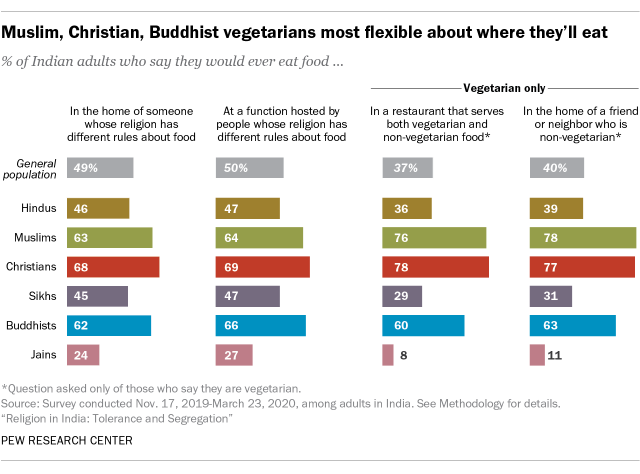
Roughly a quarter of Jains say they would eat in a domicile (24%) or at a part (27%) where the host's religious rules nearly food differ from their own, while slightly fewer than half of India's Hindus and Sikhs say the same. In contrast, vi-in-ten or more Buddhists, Muslims and Christians would exist willing to consume at a identify with dissimilar rules about food.
In that location is a similar pattern when request vegetarians near eating in dissimilar situations. Vegetarian Jains are the least likely to say they would ever eat nutrient in a restaurant that serves both not-vegetarian and vegetarian nutrient or in the home of a friend who is non vegetarian. In contrast, Buddhists, Muslims and Christians are the most likely to say this. Hindu and Sikh vegetarians, meanwhile, autumn somewhere in the middle, with three-in-ten or more proverb they would ever consume food in these non-vegetarian settings.
Non only do religious dietary traditions bear on Indians' twenty-four hour period-t0-day lives, just they too influence concepts of religious identity and belonging.
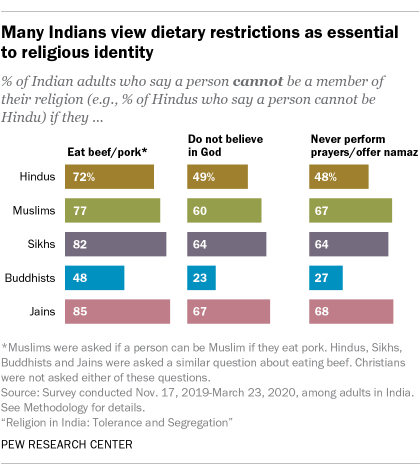
In fact, Indian adults are by and large more probable to say that following dietary restrictions is a requirement for religious identity than to say that belief in God and prayer are essential. For case, 72% of Hindus say someone cannot be Hindu if they eat beef, simply fewer express the aforementioned sentiment well-nigh someone who does not believe in God (49%) or never prays (48%).
Among Muslims, Sikhs and Jains, fifty-fifty greater shares say that following dietary rules is essential to religious identity: 77% of Muslims say a person cannot be Muslim if they eat pork, compared with smaller shares who say this nearly a person who does not believe in God (60%) or never prays (67%). More than than eight-in-10 Sikhs (82%) and Jains (85%) say that a person cannot exist truly a member of their religion if they swallow beefiness. Buddhists are carve up on the issue, with virtually one-half expressing that someone cannot be a Buddhist if they swallow beefiness. (Christians were not asked about eating meat and Christian identity.)
Notation: Here are the questions used for this report, along with responses, and its methodology.
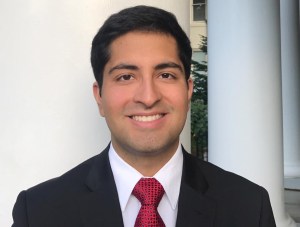
Manolo Corichi is a enquiry assistant focusing on religion enquiry at Pew Inquiry Centre.
Source: https://www.pewresearch.org/fact-tank/2021/07/08/eight-in-ten-indians-limit-meat-in-their-diets-and-four-in-ten-consider-themselves-vegetarian/